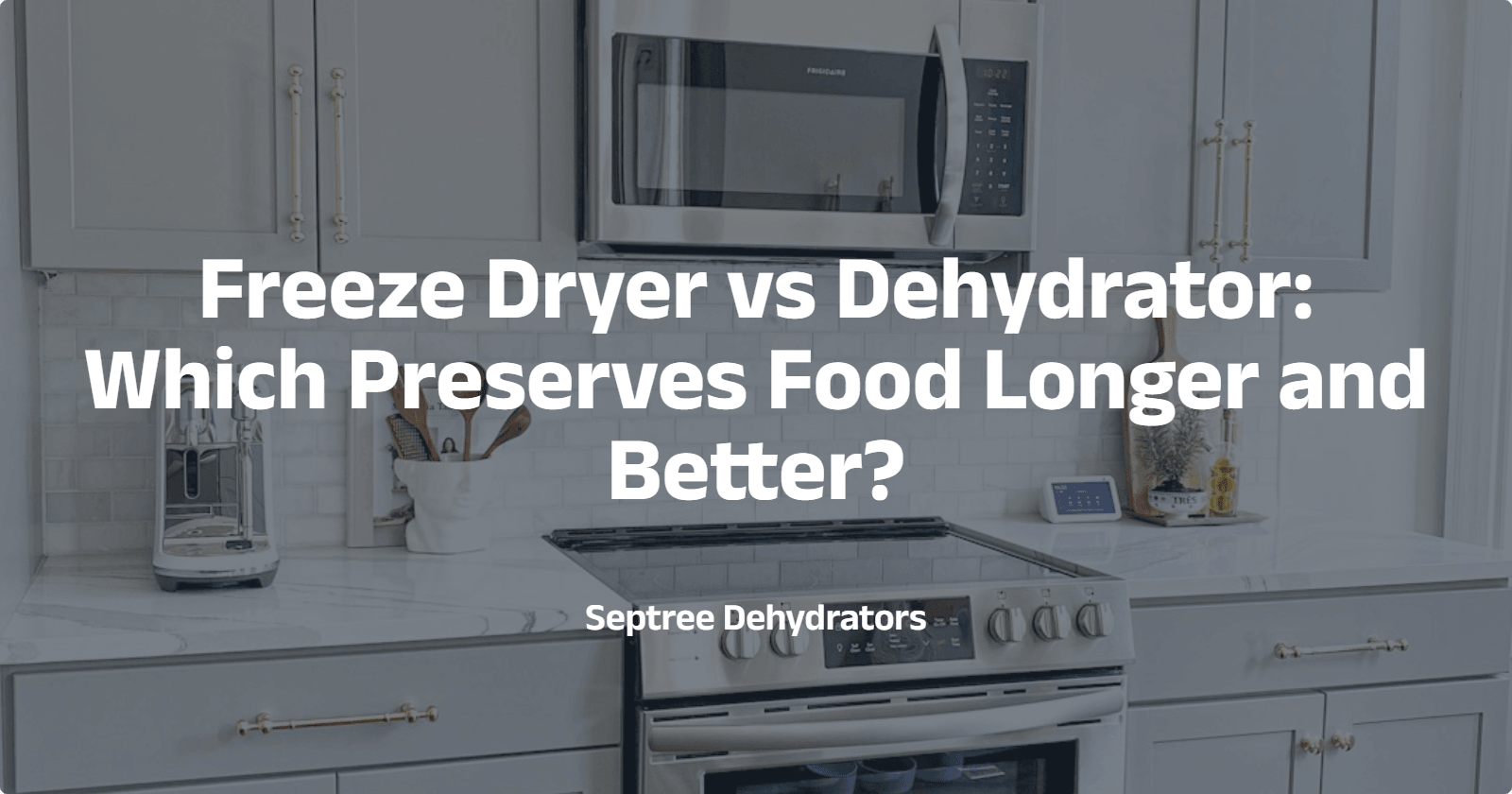Freeze Dryer vs Dehydrator: Which Preserves Food Longer and Better?

From this point, food preservation has become more popular in most households. Individuals practice environmental conservation in their eating habits and take less processed food. As for the long-term preservation, there are two major measures which can be distinguished. The major types here include the freeze-dryer and dehydrating machines. They are used in areas such as hospitals, the pharmaceutical markets, and the food production uncertainties.
While both augment the shelf life of food, they do this in a very peculiar manner that sets the two apart. In this article, differences between a freeze dryer and a dehydrator are defined. This will explain the characteristics of dehydrators in the field of food preservation.

What is a Dehydrator?
Dehydrator is a kitchen appliance which is used in food preparation. This includes coordinating between heat and a good flood of air. The impact of reduction of the moisture content present with the meals. Some of what was observed during circulation of hot air include:Some of what was observed during circulation of hot air include:
Food losses in fruits, vegetables and meat products plus herbs to be stored and prepared for food preparation without refrigeration. The dehydrators work in preparation of jerky foods, fruits, and vegetables in preparing meals for consumption.

How Does a Dehydrator Work?
A dehydrator functions by having a fan as well as a heater to circulate hot air over foods placed in trays. This goes on and prevents the replenishing of the moisture content in the environment. Thus, preventing the growth of mold and bacteria in the food that is being processed in these equipment.

How does the use of the Dehydrator benefit the people?
- Affordable and Accessible
-
Quick and Efficient for Small Batches
-
Nutrient Retention
-
Compact and Portable
They are not as big as freeze dryers and do not occupy much space thus can be put anywhere in the house or on the countertop or in the cabinet.

When to Use a Dehydrator?
-
Making Jerky
They can be used to dehydrate meats which are of beef, turkey or even vegetable types of the meat, using stainless steel dehydrators. This way you get to decide when to dry it and at what temperature you want. Thus avoid preservatives used in commercial produced cheddar cheese.

-
Drying Fruits and Vegetables
The main use of these machines is in germinating fruits and vegetables thus making them tasty snacks for many people. Fresh apples, bananas and tomatoes are dried and the sweetness of those fruits stays in it. As a result they turn into grain, gluten and sugar free healthy snacks that can be consumed by the whole family.
-
Preserving Herbs
For growers and chefs, dehydrators stand as an easy method of drying herbs including basil, thyme and rosemary. Dehydration also helps retain the quality of herbs because they can take months before missing their aromatic property.

*Use Septree food dehydrator to dehydrate herbs
-
Lightweight Camping Food
Those who love the outside and adventure such as camping and the rest, dehydrators are suitable for preparing foods. They are light; can be used in performing such activities. As a result the meals are all in lightweight and compact form, so that they don’t need much water to rehydrate the meals.

Freeze Dryer vs. Dehydrator
Here we are talking about Freeze Dryers vs. Dehydrators. As a result, the some of key differences are:
1. Method of Preservation
- Dehydrator: The known process is activated through heat and also through the circulation of air with a view of eradicating moisture.
- Freeze Dryer: It works by use of the freezing and vacuum way known as sublimation, in order to dehumidify food produce.
2. Shelf Life
- Dehydrator: Some foods can last for as little as half a year or for a maximum of one year depending on the conditions prevalent in foods storage.
- Freeze Dryer: According to the kind of packaging used, foods can go bad for a period of up to 25 years.
3. Nutrient Preservation
- Dehydrator: Almost all nutrients tend to be retained with some of them most probably degrading due to heat.
- Freeze Dryer: Has almost all nutrients preserved because heat treatment is not applied to the food it preserves.
4. Energy Efficiency
- Dehydrator: The inconveniences that come with its use are; while using it less energy than the conventional electric heater type that is most suitable for home use.
- Freeze Dryer: It utilizes more power through the freezing and vacuum process.
Conclusion: Which is Better?
Some of the information which proves that dehydrators and freeze dryers are helpful in preservation of food includes;
However, if you want a snack maker which will offer affordable snacks such as jerky, fruit chips or dried herbs, then a dehydrator is more appropriate. Furthermore, it is suited specifically for single projects, uses less energy and is significantly less complicated to obtain for an average owner of a house.
On the other hand, if one wants to preserve a lot of food and this food will be consumed after 25 years then freeze drying is the most effective process. The following is worth mentioning though. It has raised the initial costs for the toolkit and higher level of difficulty in the process, all things considered.
Ultimately, the right choice depends on your needs: Whether the purpose is for a temporary storage to quickly gain some nutrition or for a long term storage whereby as many nutrients as possible should be preserved.


Dejar un comentario